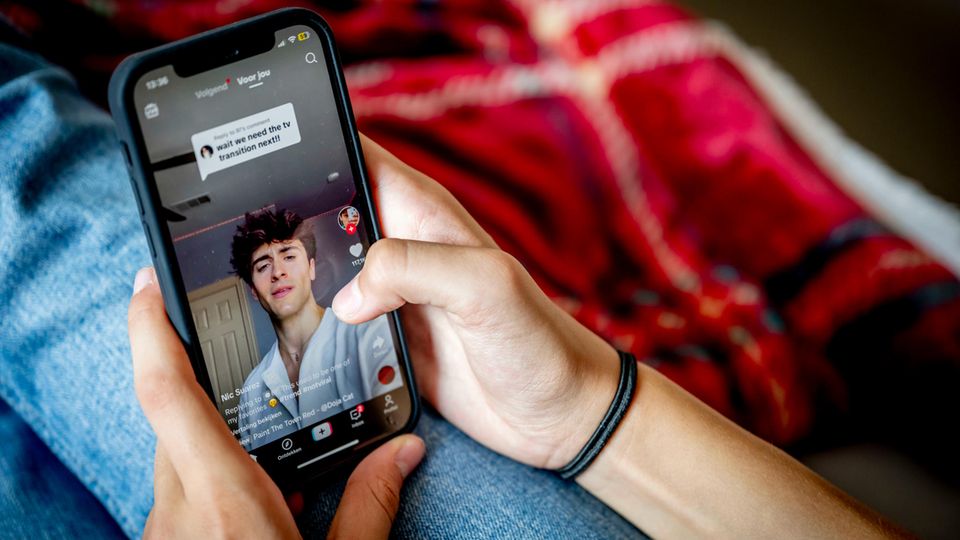interview
EU procedure
How addictive is TikTok?
The “TikTok” app from the Chinese company ByteDance has been criticized
© SOPA Images / Imago Images
In the EU there are fears that the new version of the app called “Tiktok lite” could be even more dangerous and even more addictive. Patrick Bach, who researches media addiction, explains why.
“Tiktok lite” is currently available in France and Spain in the EU. Anyone who watches videos or rates content for several hours receives digital coins, which can then be converted into vouchers, for example for Amazon.
Exactly, this intensifies all the effects that make Tiktok so dangerous: the user stays tuned because it allows them to earn money. At the same time, he likes more because he gets paid for it. This means the system learns even better what the user likes. It can keep him engaged even more efficiently. But you can’t blame Tiktok for all of this. That’s exactly what the manufacturer is after, that’s exactly how he makes his money.
The EU sees this newer version as a “risk of serious harm to the mental health of users”. She uses drastic words. Rightly so?
Of course, it depends on what you define as serious damage. However, it is clear that using Tiktok can lead to addictive behavior patterns that cause severe psychological stress and can have serious psychosocial consequences for those affected.
What are these consequences?
Because you constantly have your cell phone in your hand, you are no longer able to meet your everyday obligations. For example, children’s performance levels at school drop or they neglect social activities such as their sports club.
If the addiction is very severe, those affected can no longer control their behavior at all. You have a high level of suffering. They then no longer like to pick up the cell phone, but they do it anyway. Automatically. This can lead to a negative spiral: you feel bad because you are on Tiktok so much. And suppress these negative feelings with Tiktok.
You could also compare the concept of “Tiktok lite” with wage work. People get paid to do something. Could one, quite naively, hope that users would lose fun with the app?
I’m afraid not. The whole thing seems to be woven together very organically. The app doesn’t directly pressure the user to do something, rather it shows them that they can get something extra. The Chinese version cleverly suggests that you can achieve something – and more and more of it.
Patrick Bach: Shouldn’t take Tiktok out of duty
According to a study by the NRW media authority, 60 percent of the content on Tiktok makes children feel unwell. So why are they still subjecting themselves to these videos?
Especially with children and young people, you have to remember that there is a strong “peer” effect, meaning that people of the same age strongly influence each other. They show each other videos and motivate each other to be active on the app.
Also, you shouldn’t forget: Even if 60 percent of the content is not perceived as pleasant, 40 percent is still so.
Does that mean Tiktok undermines personal responsibility?
At the very least, it is severely compromised. This is already problematic for adults with a well-developed self-image. But children and young people don’t have that yet. Add peer pressure and the sophisticated Tiktok algorithm to the mix and things get dangerous.

Almost 90 years old and no one believes him: TikTok grandpa reveals his beauty secret
01:36 minutes
In your opinion, what would be good measures to limit the dangers of the app?
I don’t believe in a complete ban. Also because sooner or later the methods will be adopted by other providers. There are always ways. In addition to restricting access for very young age groups, I think it would be smart to make breaks mandatory. Let’s say that after three videos a black screen would be briefly displayed: This would give the user the opportunity to consciously reflect on whether they even want to see the next videos. The suction could be broken. Of course, this contradicts the company’s interests. But I don’t think the manufacturers should just be relieved of their obligation.




